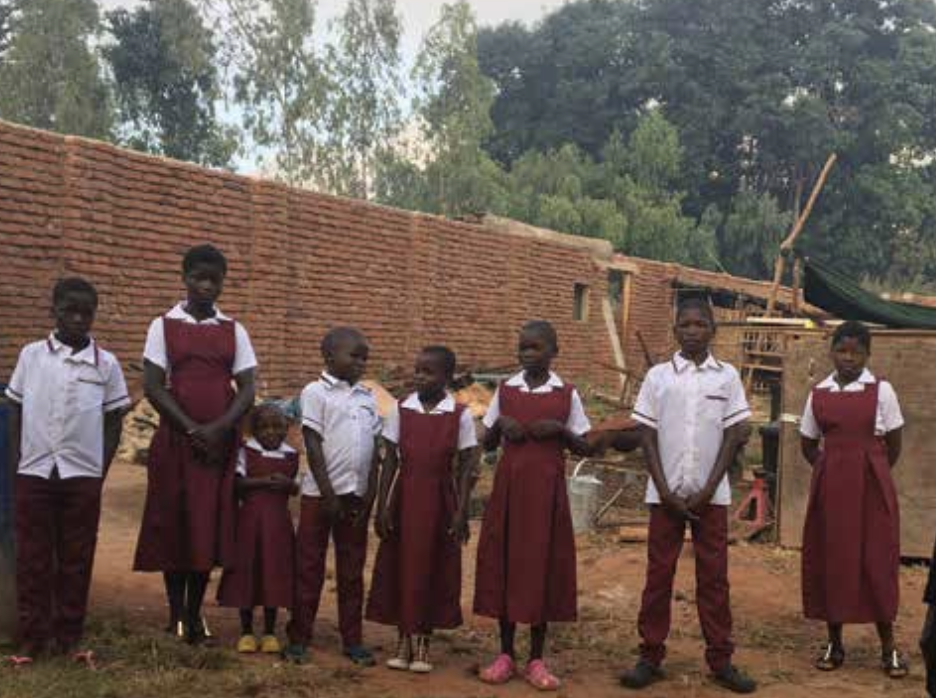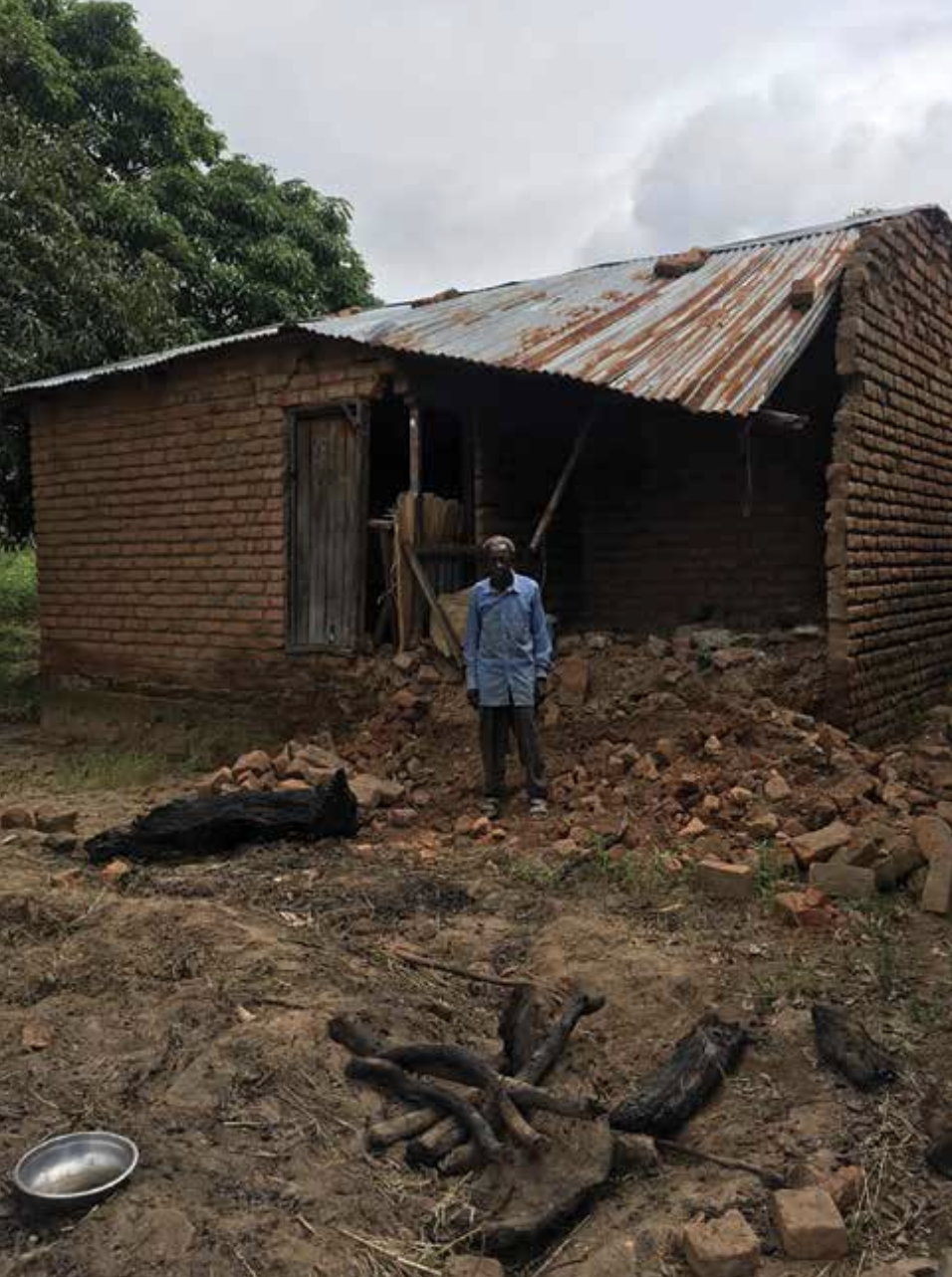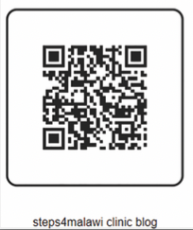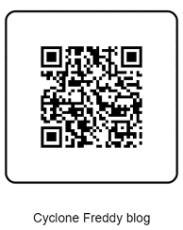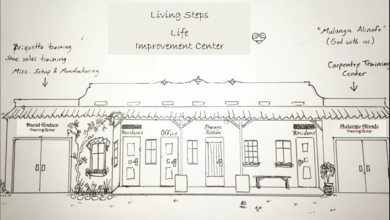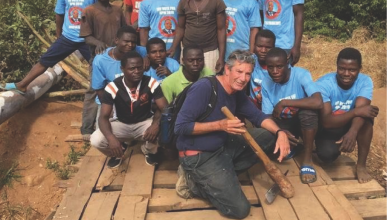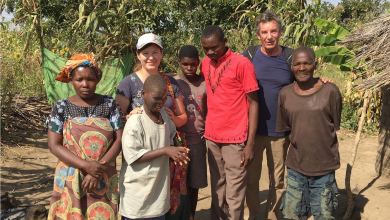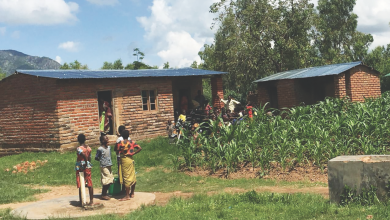Dan & Alise Shulters Life in Malawi – Update
Its been over five years now that Dan and Alise Shulters packed up life in Ashland, Oregon to move to Mthika Malawi, a small village, located 2 hours from the nearest city and 100 miles from the nearest airport. Life in Malawi is certainly different with no running water yet, no electric grid available, and living in the middle of a small village where no one speaks semi- fluent English. It takes a special type of courage and zest for life to commit oneself to such a journey. Self reliance just begins to touch on making things work there. In todays interview I speak with Dan and Alise about their life, work and mission in Malawi. I ask them about their recent experience of surviving cyclone Freddy. We are also asking for the support of anyone who can help with purchasing items off of a short amazon wishlist.
https://steps4malawi.org/amazon-list
A student group from Corvallis, Oregon will be traveling to Malawi June 18th to visit a friend of theirs, and still has room in their bags to bring these essential items along.
Dan & Alise, welcome back to LocalsGuide. I think of you both often and reflect on the life you all are living. In your experience, what has been the biggest change that you have adapted to since leaving Ashland five years ago?
It’s so good to be back. Oh gosh, there’s a list! We would like to tweak this question from adapted to adapting to. But I think our main three things are:
1. NO ONE SPEAKS ENGLISH HERE. We say this painting with a broad brush, but it sure feels like this sometimes. You might be thinking, “Why don’t you learn the local language?” And we agree. And we have tried. And we are trying. Chewa is really hard for an English speaker to learn. Alise, who teaches at a nursery school, is actually starting to pick it up more and more. But Dan, poor Dan, is struggling with the tonal language where every vowel is pronounced differently from what he grew up with. But the good news is, as we butcher and mispronounce and stumble over words, the local villagers’ delight in the fact we are trying to learn their language. The challenge is that it requires us to have a translator, and when we don’t it leads to problems for Dan when working with a builder, mechanic, welder, etc. But we are making it work.
2. Let’s start this one off by saying we really miss Ashland Ace Hardware. Dan would make several trips a day to Ace from the shoe shop to get the things he needed. Those days are GONE. Fortunately, Dan was able to bring many tools with us when we came. When we first arrived we could spend an entire day going from shop to shop in town just to find a simple bolt, if you found it at all. Things have improved, we even have a store called Build Africa now which brings in things from South Africa. But there is still a long list of items we cannot get here. We have since discovered what we can get here vs. what we should get here or have brought from America. And there are those items we just can’t get. In ninety percent of the cases it is impossible to get something shipped to Malawi from the US, affordably, safely, and within six months. Early on we discovered that using the complementary 100lbs checked baggage was a great way to get items here. Free shipping from America, when and if you have people coming to visit. Lately, we have discovered the Amazon Gift Registry lists. When we know someone is coming we can create a list of the items we have discovered we need, people can then go to the list, purchase the item as a donation, the shipping address of the person coming is listed, and they just click, buy, and ship. It’s a great way for people to support us and it’s been a huge help. We currently have people coming in June to see our friend Wendy, and they are bringing us two boxes. There’s a QR code to the right on this page that can take you directly to the list of needed items.
3. One of the things that is more expensive in Malawi than in America is fuel. The cost of fuel makes transportation expensive.
There are several ways to get around in Malawi. There’s public transport, which consists of minibusses, little car taxis, bus service between the three large cities, and finally motorcycle and bicycle taxis. Then there’s always private vehicles and your own two feet. Unlike Forrest Gump, if we’re going somewhere within the local villages, we are walking. Or as they say here, “footing.” This requires us to be very strategic, as most of our needs requiring motor transport come from Blantyre two hours away, and hiring trucks is very expensive. We do own a Yamaha quad and a tiny tiny K truck from Japan (a motorized wheelbarrow). However, nothing is running at this time, which has been challenging. But it’s okay. When we first came here all we had was our feet. And it tends to keep us in shape anyway.
So, Dan & Alise, what exactly is your mission together living in Malawi, and how are you fulfilling this on a daily basis?
Well, our ultimate goal is to help the people of our area move from subsistence into a sustainable life, and at the same time we are making an effort to assist orphans and the elderly gogos. Every year there is a hunger season, a cyclone season, and too many unbudgeted for emergencies. Savings accounts are livestock and cash crops that could fail. The average villager here only farms, and if they need money they go and search for piece work to be able to afford new clothes, school fees, or even daily food. When it’s harvest time, there’s enough food and money and people live it up while it lasts…which is maybe a few months. And then it’s the hunger season again. Very few people in our area have the money managing skills to save up for the inflated prices and devaluation of the Malawian kwacha. As you can see, this makes our mission a bit more difficult. So, daily, we take it one step at a time. One morning there might be thirty people dying of malaria on our doorstep and the government hospitals are out of medicine. Another day there might be four grandmothers whose homes collapsed during the cyclone and lost everything. The needs are as many as there are days in the calendar, and we’re talking about those calendars that add January of the next year. We have spent the last two years trying to restructure both our physical infrastructure with a new place along with rebuilding our programs, while everyday helping whatever comes to our door. COVID was a real gut punch, not the virus itself, but the internationally forced government driven response to it. The virus did not affect us here, but forced regulations did.
That sounds hard. So, on a positive note, what are the most beautiful things you get to experience together in Malawi?
Sitting on our front porch, instant coffee in hand, gazing at the picturesque mountains Mulanje and Mchese. Walking down the dirt road and being mobbed by children yelling out our names and circling us. Beholding the beauty of Lake Malawi. Holding newborn babies and being asked if we would help name them. Watching baby goats jump onto and fly off of rocks in our field. Walking home after a long day knowing you made a difference in one person’s life. These are some of the beautiful things we get to enjoy and hold near and dear to our hearts.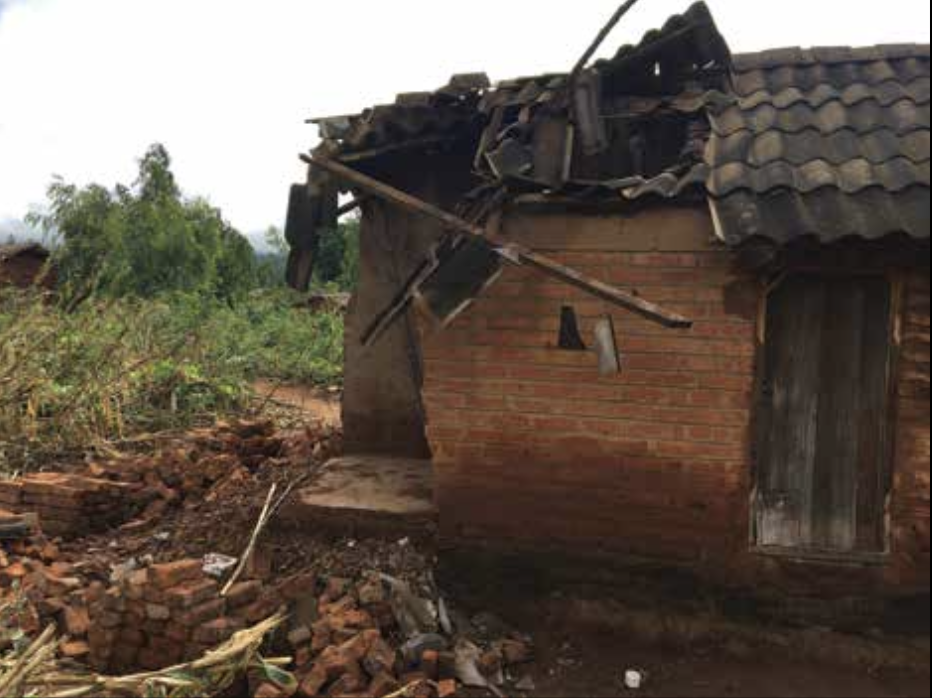
What are the most difficult and trying things you experience together with your life in Malawi?
There are too many funerals. Too many with HIV that never went to get tested. Too many who got malaria and had no hope to get the medication for themselves. Too many babies who get AIDS due to complications at birth and the hospital didn’t have lighting for a C-section. Too many elderly people starving because their families are hungry and ask them for their food when they can work. There’s just too much death.
What could we as North Americans never imagine nor accept that you see as a way of life in Malawi?
Ha! Some of the first things that might be witnessed upon arrival: A pick-up truck with thirty people standing in the back driving down a major highway. A motorcycle with six people on it including the baby sitting on the gas tank. A two, a three, and a four-year old sitting on the side of the road around a warming fire – no adult in sight – that they made to keep warm in the morning. No flush toilets, homes with dirt floors and no beds or furniture. The average family of seven living in a home smaller than the typical American garage. People standing on the side of the road selling dried mice on a stick for snacks. Pigs strapped to the back of motorcycles. Motorcycles driving by with the driver wearing a goat like a fanny pack on his way to market. We could keep going, but you get the idea.
What are some of the most heart warming and positive experiences you get to witness on a daily basis?
There are eight school aged children on our property, and every morning it is so rewarding to see them all in their matching uniforms walking to their new private school. They come home for lunch and show us their quizzes and homework and the progress they are making that they were unable to make at their previous schools, as some were kicked out due to clothes with holes, not enough notebooks, or simply because they didn’t have 400 kwacha (roughly under 40¢) for some administration fee. On the weekends and some evenings they all get together despite their different grades to form a study group and help each other out. Alise even bakes them cookies when they all study together, and sometimes joins in to tutor them. We are so proud of them and the effort they’re putting into their education with the opportunity they’ve been given to catch up. And then of course there is the nursery school which Steps4Malawi built on Wendy’s property and Alise does in the mornings. Thirty children all under the age of six come for songs, stories, learning the alphabet and numbers, and a bowl of mixed grain porridge. Alise knows them all, first and last names, and enjoys being silly with them to make school fun. After Cyclone Freddy one three-year-old little girl with HIV had to be relocated to our village, but would still make the trek up the mountain to Wendy’s schoolhouse. It’s an added workout, but Alise now carries her on her back tied with a chitenge cloth the two plus kilometers every morning. Her name is Happy. Sore muscles = warm heart. While Alise is at school, Dan is at our place working with Khwale overseeing building and other projects. The heartwarmer for him is meeting with those who come for assistance or medical issues. Being fortunate enough to speak with those and send them to clinics who otherwise would have nothing.
Dan & Alise, how have you both changed from your experience of living in Malawi?
Before coming to Malawi we had been exposed to a different way of thinking about first world to third world assistance. We’d watched and seen several different documentaries, we’d read When Giving Hurts, we’d watched Poverty Inc., but still didn’t really understand our thinking was flawed. We came with our ideas and our projects to help fix what we believed the problems were, and realized after several months that we didn’t have a clue. We knew that it wasn’t about us, but we didn’t understand what that meant. The Western nonprofit/governmental driven charity programs have not worked.
They’ve created countries with no exports, because why make something when the giveaway equivalent is going to be given to you (international nonprofits flood the ports with tons of free or cheap used clothes and accessories)? Why maintain infrastructure given to you when it will just be replaced when it breaks due to no maintenance? These types of things have created corruption, denigrated national pride, and all but eliminated entrepreneurialism. As a general policy, we are not a giveaway program. People who receive, in some creative manner are asked to put some skin in the game. Now, of course there are times where giving is necessary to save a life, to get someone back on track, but it doesn’t continue. On top of which, our true goal of goals is to work ourselves out of a job by bringing up Malawians to serve instead. “It takes Malawians to save Malawi.” Our programs now focus on medical assistance, vocational training, and entrepreneur micro-enterprise opportunities and training.
What would you recommend to others looking for deep purpose in their lives at this point in time?
Look outside of yourself. Stand up and look around, see over your own desires and wants to others. And you will see many people who don’t have desires and wants, instead they have true needs. We’re not saying everyone needs to come to Malawi or even Africa, or even leave their own street, but we need to move out of ourselves and into others. The boat, the big screen TV, the cabin on the lake won’t provide your deep purpose. Amusement means to not think, to not muse. And when you’re lying on your deathbed, you will muse.
Finally, how can we help and support you as a community and what would that support look like? What exactly do you need?
Well, we are in the process of trying to build a clinic. On the right hand side of the page is a QR code and weblink to a more in-depth description of this. The clinic would serve our local villages and help fill the gap in the government healthcare system that is costing lives. The clinic will be located on our property and we have constructed the foundation.
We need to raise funds to be able to bring another container of shoes and restart the shoe micro-enterprise program that COVID drove into the ground in 2020.
More immediately, there are people who are coming to our area from Corvallis who have offered to transport one hundred pounds worth of supplies. We currently have an Amazon list listing these supplies.
What are some of the social projects you are currently working on and goals for 2023?
1. The Medical clinic we mentioned.
2. We are going to restart our monthly Street Business training.
3. We hope to be able this year to reintegrate our shoe micro-enterprise operation.
4. After the nandolo (chickpea) harvest, we are going to begin our medicinal plants nursery.
5. We will continue our ongoing support of gogos and orphans, along with breastfeeding support with new mothers having trouble producing enough milk for their babies.
6. Alise will continue teaching nursery school.
I would like to mention that in our recent phone call you mentioned $1,300 paid the medical bills for 250 people in one month. That is astounding.
True, but I’m assuming you think that’s a great deal, which it is. In America. To put it in perspective, that’s the equivalent of 43 1/2 months pay for the average rural Malawian. It is also more than our current budget can sustain. When we came to Malawi, we never planned to be involved in medical assistance. After Dan spent his first six months here, and then during the first year of our married life in the East African country, we discovered there was a huge hole in the system and a daily need for intervention that was life or death.
Due to the pervasive nationwide poverty, both within and without the government, people are dying from the most basic and curable issues. Malaria, respiratory infections, a cut on the hand soon riddled with infection, etc.
We started to see people that we knew dying from things we thought they’d been treated for, only to find out they were not. Remember, we are in the most rural setting (villages), not in the city. Few of these villagers have the needed money, and few of these village government clinics have the medication needed.
More information on that if you follow that QR code to the right.
Good luck to you both and take good care. I admire your courage, conviction and dedication.
Thank you Shields for this opportunity and all you’ve done for us. If anyone would like to get more information or contact us to inquire about a visit, you can via our email steps4malawi@gmail.com or WhatsApp us at 541-301-9595
And as always, our website is Steps4Malawi.org if you’d like to hear more.

